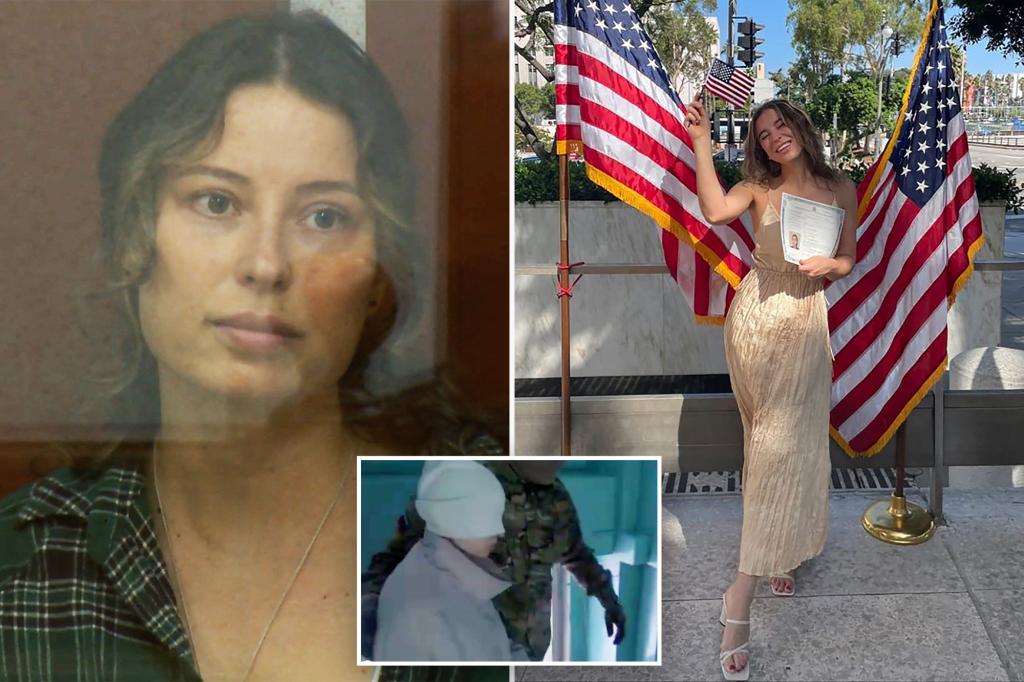Ksenia Karelina, a Russian-American woman, was arrested earlier this year in Russia and stands accused of treason for allegedly raising money to send to the Ukrainian army. If found guilty, she faces a sentence of 12 years to life in prison. Her trial is being held behind closed doors, as is customary in such cases in Russia, where treason acquittals are rare. Karelina was shown in a short video sitting in a glass cage in court, smiling faintly as photographers captured the moment.
At least a dozen Americans are currently detained in Russia, a result of the strained relations between Moscow and Washington during the Ukraine war. Karelina was detained by Russia’s Federal Security Service (FSB) in January while visiting her family in Yekaterinburg. Her mother-in-law, Eleonora Srebroski, mentioned that Karelina had assured her boyfriend that Russia was safe and had no reason to fear her traveling there. Initially arrested for “petty hooliganism,” Karelina was later charged with treason for allegedly making a small donation to a nonprofit that sends non-military assistance to Ukraine.
Karelina arrived in the US in 2012 through a work-study program and was briefly married to Srebroski’s son. Despite her fun-loving nature and lack of interest in politics, her actions have landed her in a legal battle that could have severe consequences. Her social media profiles depict a carefree life of trips and beach outings without any overt political messaging. A photo from November 2021 shows her waving an American flag with the caption “Citizenship,” hinting at her pride in becoming an American citizen.
The ongoing conflict in Ukraine has led to a growing number of foreign nationals, including Americans, being detained in Russia. Karelina’s case sheds light on the complexities of diplomatic relations between countries and the impact it can have on individuals caught in the crossfire. Her trial being held behind closed doors raises concerns about transparency and fairness in the judicial process. The accusations of treason for supporting the Ukrainian army add a layer of political sensitivity to her case, which could further complicate her legal defense.
Karelina’s experience highlights the challenges faced by individuals with dual nationalities in navigating the political tensions between their countries of origin and their adopted homelands. Her arrest and trial in Russia serve as a cautionary tale for others in similar situations, emphasizing the importance of understanding the legal and political landscape of both countries. As the trial progresses, it will be essential to monitor developments and advocate for transparency to ensure a fair outcome for Karelina and others caught in similar circumstances.
The support and advocacy for Karelina during her trial will be critical in ensuring her rights are protected and that she receives a fair hearing. International organizations and diplomatic channels may play a role in advocating for her release or a reduction in her sentence if she is convicted. The impact of her case extends beyond her personal situation, highlighting broader issues of political tensions, human rights, and the need for a fair and transparent judicial system. As the trial continues, the international community will be watching closely to see how justice is served in this complex and sensitive case.


